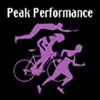Overtraining syndrome is a very common pitfall for athletes and sports people, affecting more than 60% of distance runners during their athletic careers, more than half of professional soccer players during a five-month competitive season and 33% of basketball players participating in a six-week training camp, according to published research.
Yet there is no agreed definition, no objective diagnostic test for the condition, while the underlying mechanism remains unknown. And despite elaborate annual periodisation programmes designed to prevent OTS, even the most experienced coaches admit that they cannot predict which team members will experience performance decrements—the only universal sign of the syndrome.
However, in a comprehensive review of this mystifying syndrome—known variously as staleness, chronic fatigue, overstrain and burnout—a pair of US sports scientists point the way to a greater understanding of the syndrome and even towards a cure.
The basic theses outlined by Laurence Armstrong and Jaci VanHeest is that OTS and clinical depression share 'remarkably similar' signs and symptoms, brain structures, neurotransmitters, endocrine pathways and immune responses.
This suggests that the two syndromes have similar causes and raised the possibility that medications prescribed for depression—i.e. antidepressants—may effectively treat OTS. OTS is defined in the review as 'a set of persistent physical and psychological symptoms that occur subsequent to prolonged application of heavy training loads.
The critical OTS diagnostic factor is a chronic decrease in performance, not simply the existence of [signs and symptoms]…complete recovery from OTS requires from several weeks to several months'.
Symptons Of OTS
Up to 90 signs and symptoms of OTS have been identified, of which the most common are:
- Decreased physical performance
- General fatigue, malaise and loss of vigour
- Insomnia
- Change in appetite
- Irritability, restlessness, excitability, anxiety
- Loss of body weight
- Loss of motivation
- Lack of mental concentration
- Feelings of depression.
All except the first of these are also recognized signs and symptoms of major depression.
'Two noteworthy reviews provide a theoretical connection between OTS and depression.' Explain the researchers. 'Both independently hypothesised that highly motivated athletes, consumed with the will to perform well and win, become frustrated by poor performance that may be caused by inadequate recovery during over-reaching and overtraining.
Part of this disappointment stems from the athletes' realization that they are not living up to pre-established aspirations or goals, despite having invested much in their training program. 'Frustration next leads to increased practice time each day and increased training intensity, which results in less regeneration, increased fatigue and worsening of performance.
This progressive cycle of decline also results in deterioration of an athlete's mental well-being. Depression then may manifest itself as altered mood states, sleep disturbances and a loss of zeal for training and competition.'
A Case Study
Armstrong and VanHeest cite a fascinating anonymised case report on an elite marathon runner (formerly an American record holder in three events and the dominant distance runner in the world) who was laid low with an endless series of illnesses and injuries, accompanied by a decline in performance lasting for more than a decade.
In 1992 this athlete met a physician who had reversed these kinds of problems with the antidepressant drug fluoxetine. The athletes began taking the drug and began to feel better within three days. His running performance was also boosted within three days, as evidenced by a strenuous workout that was his best in eight years.
In May 1994 this runner entered and won the 86.7k comrades marathon in South Africa—his first major competition in 10 years—defeating his nearest competitor by over four minutes. He subsequently credited the antidepressant medication with correcting his 'medical deficiencies' and felt healthier in all areas of his life.
The US researchers strongly recommend controlled research studies to evaluate the effects of various antidepressant medications on variants of OTS.
They recognise, though, that the picture is complicated by the existence of two different types of OTS, one primarily involving the sympathetic nervous system and the other the parasympathetic, and also that interactions of different neurotransmitter systems, including noradrenaline and serotonin, are probably involved.
What To Do
They offer the following advice to coaches in relation to OTS:
- Maintain accurate records of performance during training and competition and be prepared to adjust training intensity/volume when performance declines;
- Encourage and reinforce optimal nutrition, hydration and sleep;
- Be aware that multiple life stressors—including, work, home and family pressures—may add to the stress of physical training;
- Treat OTS with rest—but try to find ways to make it appealing to athletes. 'Active recreation' may aid recovery and help deter monotony;
- Encourage athletes to communicate with you about their physical, mental and emotional concerns;
- Consider questionnaires or interviews—after consulting a psychologist—to determine changes in mood states.
Sports Med 2002 32(3) 185-209.
